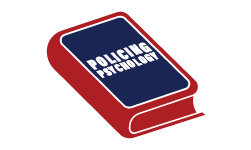High Rates of Mental Health Disorders in Civilian Employees Working in Police Organizations
Why this article is important:
Discussions of police work can sometimes focus specifically on the physical danger that officers experience, without recognizing the impacts of a career in law enforcement for all police employees. This journal article reported on a study which documented that the civilians employees had higher rates of mental health disorders and higher average scores for depression, whereas the police officers had higher alcohol usage. The study described that “the results strongly suggest that the mental health of all employees can be negatively impacted by working in a police environment, and this is important given the growing number of civilians employed within police organizations.” It is important to recognize the impact that police work can have on all employees.
Study details:
The population group for this study was 1,225 civilian employees and 3,714 police officers who worked for the RCMP. A total of 513 people participated with 201 civilians and 312 police officers. The study found that 26% of employees screened positive for a mental health condition. This was divided into subgroups, where 32.8% of civilians met the criteria for a mental health disorder, in comparison to 22.7 % of police officers. These rates are much higher than the general population of Canada, where the rate of mental health or substance abuse disorder is 10.1%. This study reports that those in the workforce are generally healthy and should be expected to have a rate that is lower than the general population.
Purpose:
This paper was focused on assessing the rates of mental health disorders within police organizations while comparing the rates for civilian employees and police officers. “The purpose of this study was to compare the mean scores on selected mental health screening tools between police officers and civilian employees at the same location. Also examined was the proportion of police officers and civilians who screen positive for several mental health disorders, including posttraumatic stress disorder (PTSD), depression, general anxiety disorder, and alcohol use.” Lastly, this study compared the rates for civilian employees to the general population.
Increases in Civilian Employees:
This topic is especially important because police organizations have been increasing their percentage of civilian employees. “Since 2003, in Canada, the United States (US) and Great Britain, the number of civilian employees has grown twice as quickly as that of sworn officers (42% vs 21%).” Our civilian employees are important in the delivery of our police services and their work “may put them at increased risk of occupational or organizational stress injuries similar to those incurred by police officers.”
Emotional Pain:
Civilians can often be exposed to the emotional pain of policing in the course of their duties. As the article described, “civilian employees in police organizations who are secondarily exposed to often gruesome or disturbing content. Their jobs within law enforcement, even as civilians, can be demanding and require employees to make emotional connections with citizens or suppress emotions when being exposed to information about crime.” This problem of emotional pain can be underrated for both police officers and civilian employees.
Summary:
The results of this study were that “both police officers and civilian employees in a police organization have higher rates of mental health disorders compared to the general population, with civilian employees having the highest rates.” This is becoming increasingly important, as mental health has continued to become an important topic in policing. It also matters because the ratio of employees within police organizations has continued to shift toward more civilian employees. It makes sense that civilian employees within police organizations would also face many similar challenges that police officers also face, which can impact their mental health.
High Rates of Mental Health Disorders in Civilian Employees Working in Police Organizations
Written by Liana Lentz, Peter H. Silverstone and Yasmeen I. Krameddine

